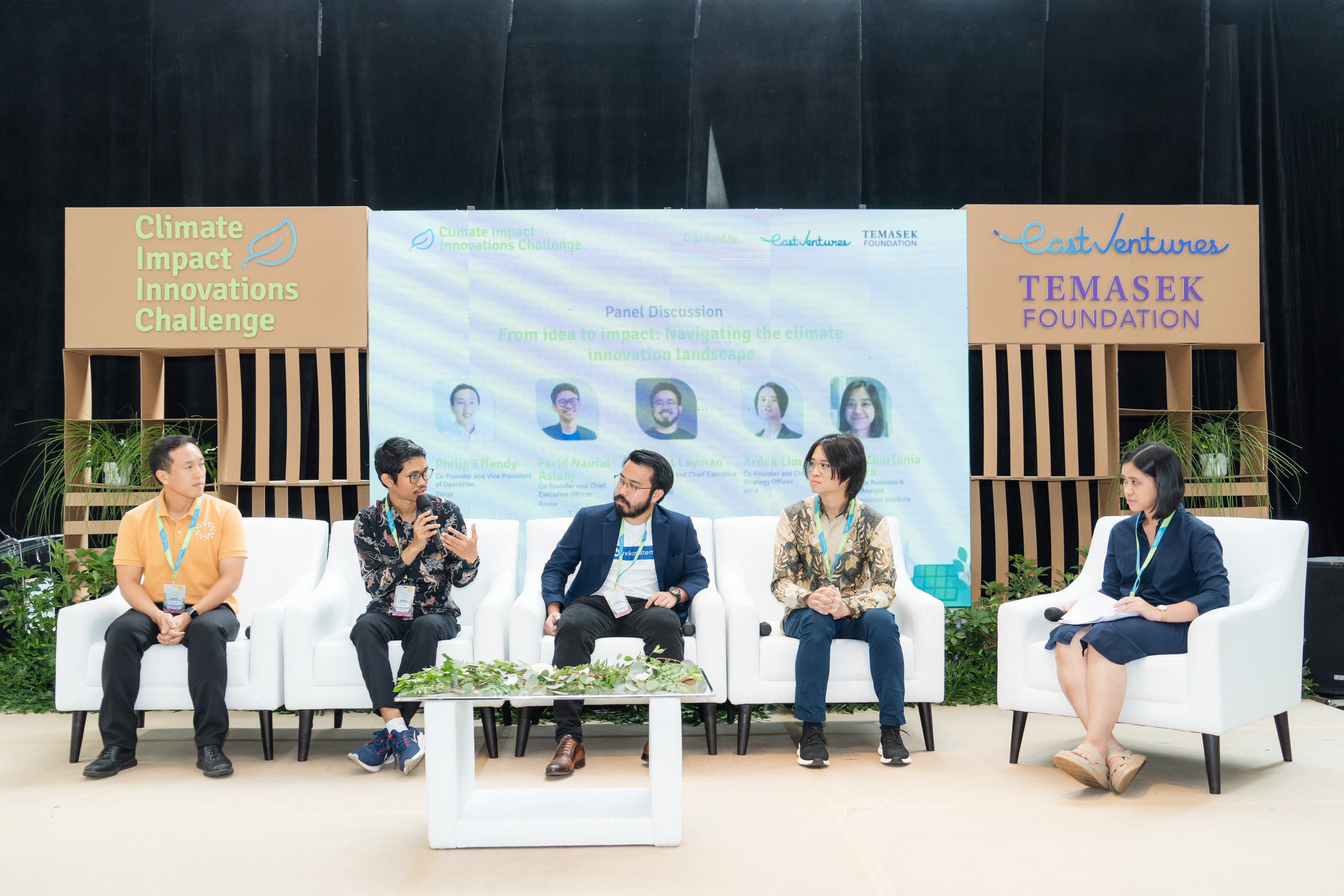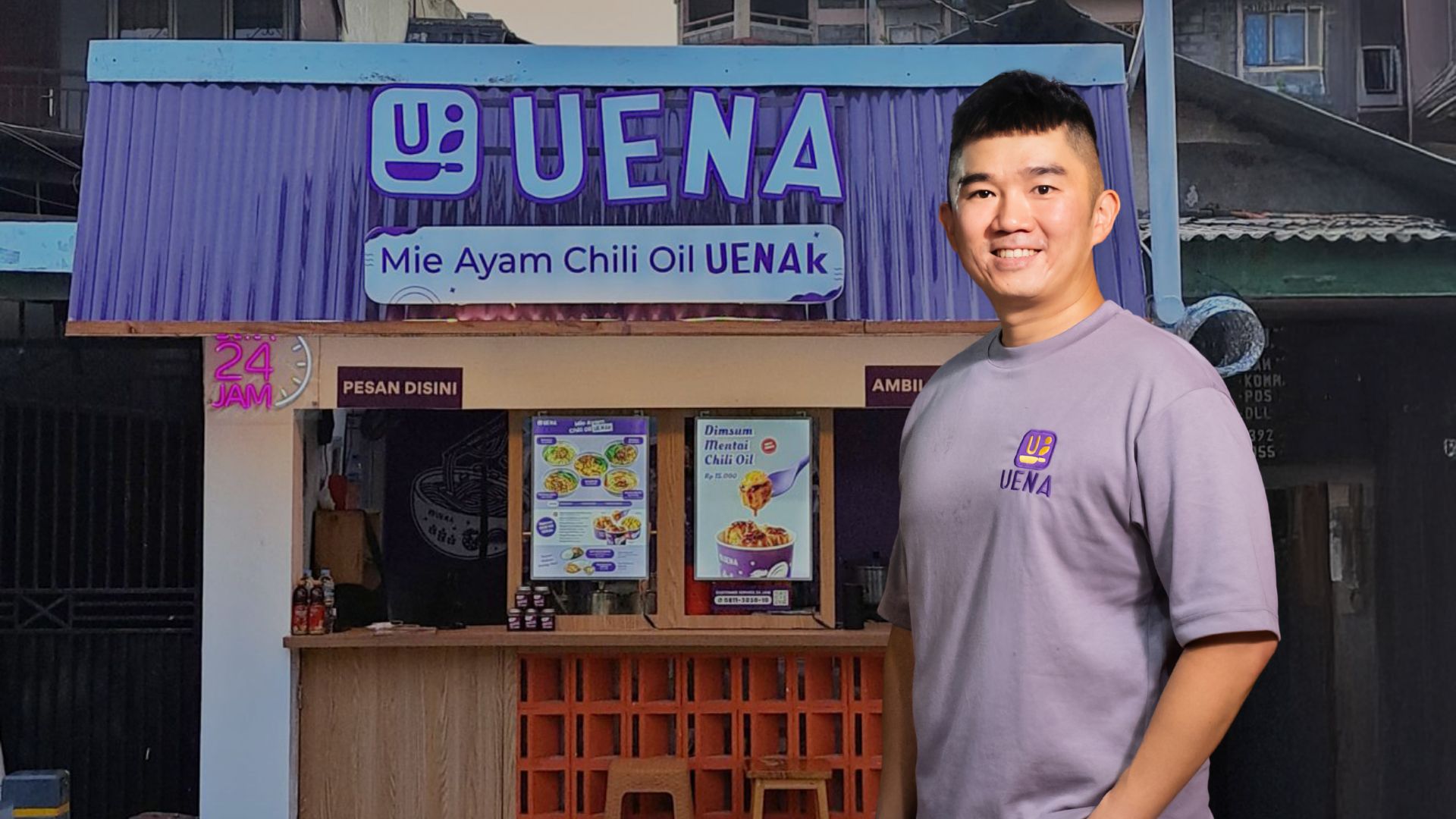Southeast Asia is currently on track to experience a 3°C warming, which goes beyond the target set by the Paris agreement to limit global warming to 1.5°C. This projection has significant ramifications for the worldwide market and the well-being of the Southeast Asian population.
According to the Intergovernmental Panel on Climate Change (IPCC), adopting technologies has the potential to reduce global emissions by two-thirds, which highlights the need to accelerate the development and deployment of climate innovation technologies.
Thus, to encourage more climate innovations and entrepreneurship, East Ventures and Temasek Foundation presented Indonesia’s largest climate innovations tech platform of the year, Climate Impact Innovations Challenge (CIIC) early this March. In the launching event of CIIC, we featured a panel discussion, titled “From idea to impact: Navigating the climate innovation landscape” with Southeast Asian climate innovators representing the four tracks of the CIIC 2023: Renewable Energy, Food & Agriculture, Mobility, and Ocean.
The speakers are: Philip Effendy, Co-Founder and VP of Operations of Xurya, Arden Lim, Co-Founder and Chief Strategy Officer of ARIA, Ernest Layman, Co-Founder and Chief Executive Officer of Rekosistem, and Farid Naufal Aslam, Co-Founder and Chief Executive Officer of Aruna.
For entrepreneurs who are keen to solve climate issues, here are three main questions that you should take note of – Why? What? and How?
Why did the founders create their innovations?
For Philip and the other founders of Xurya, the answer lies in their target market, Indonesia. As a country, Indonesia lies on the equator, a prime location for solar energy generation since it only has 2 seasons. Despite the abundance, land acquisition is notoriously difficult in Indonesia, so they turned to building owners, dealing for space on their rooftops.
What solutions are they offering?
Xurya’s solution to the climate crisis is a new way for us to generate energy, rooftop solar panels. With no upfront capital expenditure, Xurya allows commercial and industrial building owners to adopt renewable energy.
How are they implementing the solutions?
Xurya directly addresses the main barriers faced by clients in switching to renewable energy, which is cost and distrust. Xurya allows their clients to adopt renewable energy with zero initial costs, assuming responsibility for the safe installation and maintenance of the panels. In maintaining the system, Xurya provides real-time information on the client’s energy production, as well as details on CO2 emissions reduction. By eliminating these barriers, Xurya’s clients will continue to embrace renewable energy solutions.
That is one solution with regards to renewable energy that we can address in Indonesia. On the other three tracks, Aria is addressing the challenge of a growing population with limited land resources and the lack of new generations of farmers by utilizing technology to benefit both the sustainability of our farmlands and farmers’ bottom lines. Meanwhile, Aruna recognizes Indonesia’s vast ocean resources and the potential of the maritime sector, and so leverages technology to address supply chain and distribution challenges. In doing so, Aruna is transforming the Indonesian marine industry and creating opportunities for previously marginalized producers to participate in the global economy. Lastly, Rekosistem innovates in waste management because there is value to be realized in waste sorting and Indonesia’s waste recycling capacity and machinery is still massively underutilized.
Watch the full panel discussion to find more ideas and learn more about climate solutions.
Are you a game-changer with an idea for a more sustainable future? The time has come to turn your ideas into reality and follow in the footsteps of the successful founders who have paved the way. Submit your innovations before 26 May 2023 at www.climateimpactinnovations.com, and don’t miss this chance to make a difference!







